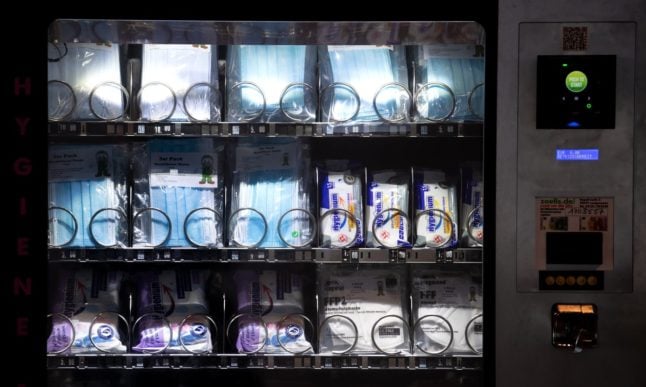The new rules would force MPs to publish exact accounts of additional earnings and ban lobbying on behalf of third parties after several conservative lawmakers were forced to resign over corruption accusations in recent weeks.
Coupled with a slow vaccination rollout and increasingly unpopular virus restrictions, the graft affair has rocked voter faith in Merkel’s CDU party and its Bavarian ally CSU, which are now on course for their worst-ever results in September’s elections.
READ ALSO: Suspect arrested in Germany’s ‘face mask scandal’
According to a survey published by broadcaster ZDF on Friday, the conservative alliance is now polling at just 27 percent, its lowest level for a year and more than five points below the record low result of 32.9 percent it secured at the 2017 elections.
“This was a bad week for the CDU/CSU,” said CSU chief Markus Söder, one of the frontrunners to succeed Merkel as chancellor at September’s elections.
“We need to learn how to fight again,” he told reporters, warning that the latest poll data showed the conservatives were in danger of being forced into opposition.
“A lot of people seem to be losing their nerve, and if you lose your nerve, you lose elections,” he said.
He added that the “credibility” of the CDU/CSU alliance had been called into question.
‘Mask affair’
In a paper drawn up on Thursday, the conservatives and their Social Democratic (SPD) coalition partners proposed a raft of measures to force more transparency from parliamentarians following the recent graft scandal over the supply of protective masks.
The measures include mandatory disclosure of business interests and exact accounts of all additional earnings over €1,000 per month.
It would also ban MPs from lobbying on behalf of third parties and receiving payment to give speeches in their role as a lawmaker.
“We need to do everything to make sure that corruption, bribery and immoral business dealings have no place in the German parliament,” said CDU parliamentary leader Ralph Brinkhaus.
His SPD opposite number Rolf Mützenich added that he hoped the new rules would “win back carelessly squandered trust in politicians”.
The “mask affair” erupted in the run-up to two key regional elections earlier this month, with the conservatives scoring their worst ever results in Baden-Württemberg and Rhineland-Palatinate states.
Bavarian CSU lawmaker Georg Nüßlein and his CDU colleague Nikolas Löbel have stepped down over accusations they had profited from mask deals.
READ ALSO: What you need to know about Germany’s ‘face mask scandal’
While Nüßlein was accused of accepting around €600,000 to lobby for a mask supplier, Löbel’s company allegedly pocketed €250,000 in commissions for acting as an intermediary in mask contracts.
Other MPs have also stepped down over conflicts of interest beyond the “mask affair”.
On Friday, the CDU announced that former MP Mark Hauptmann had left the party after giving up his mandate earlier this month.
Hauptmann, a lawmaker from the state of Thuringia, was one of several CDU parliamentarians accused of receiving payment to lobby on behalf of Azerbaijan.
By Kit Holden



 Please whitelist us to continue reading.
Please whitelist us to continue reading.
Member comments